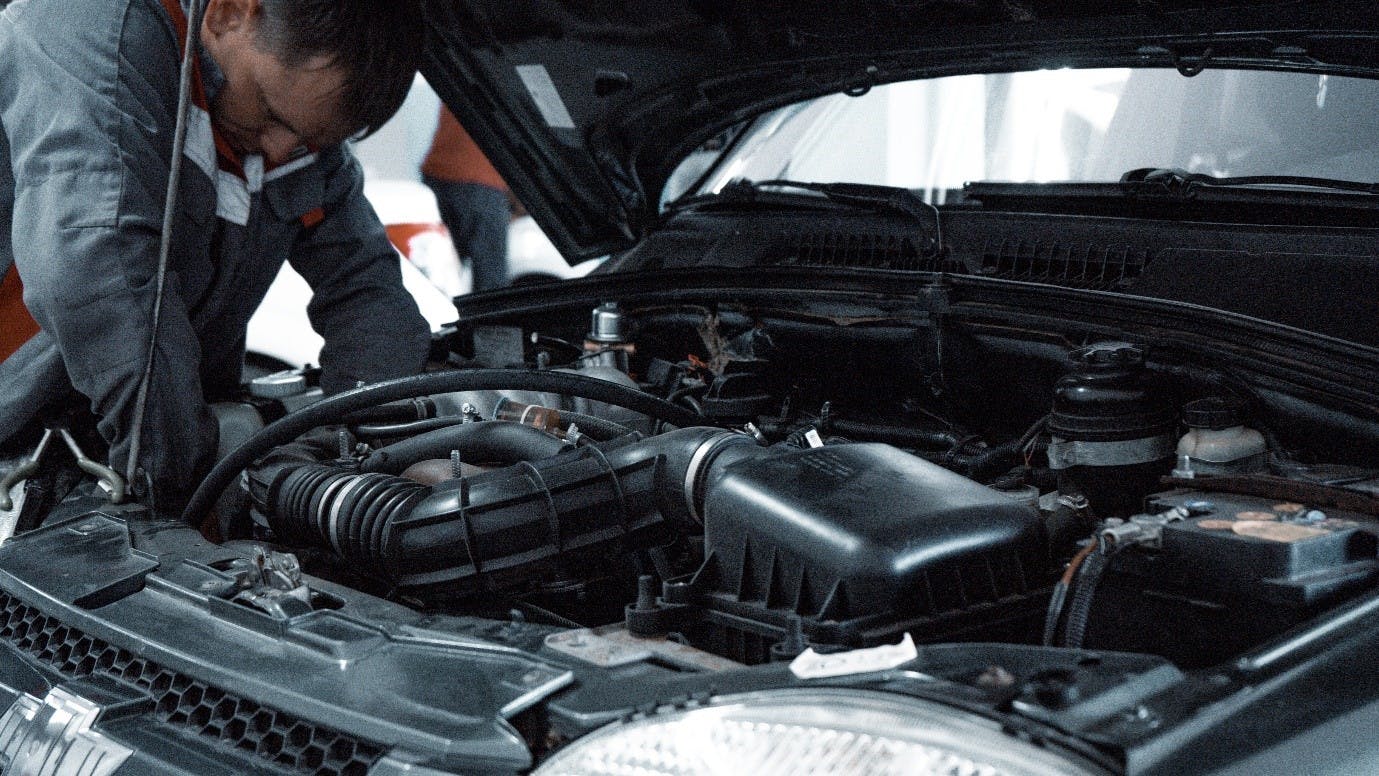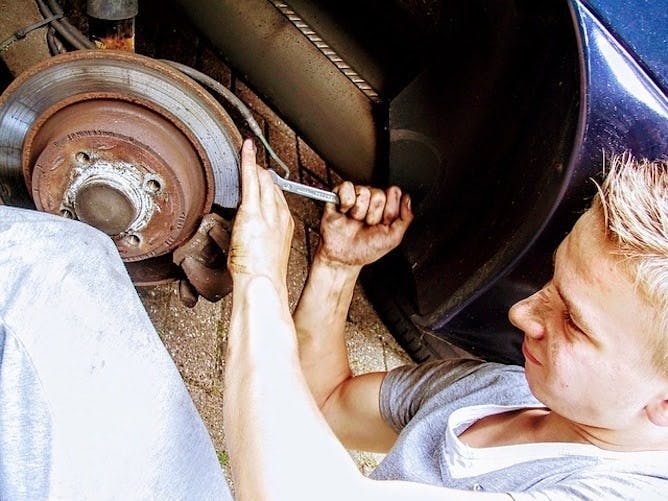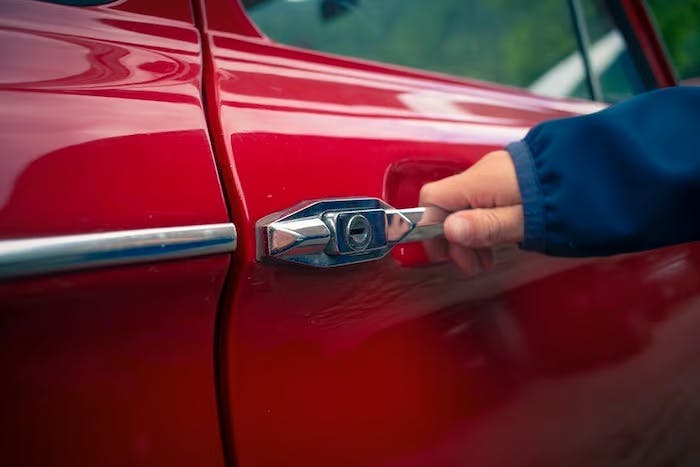
Car manufacturing is a long and complex process. It takes years to refine a car model design, implement thorough safety checks and ensure it's ready for production. Unfortunately, mistakes do still occur—whether it's faulty airbags, wiring issues or malfunctioning brakes. When a manufacturer discovers a defect that could potentially create a safety risk, they issue car recalls nationwide. So, what are you supposed to do if your car has been recalled?
We're going to walk you through what car recalls are and what steps you need to take if your car has been recalled. We'll also show you how you can find out if a car model has been recalled and why it's important to take action. Get the full lowdown below!
What are car recalls?

Car manufacturers spend years perfecting their car models—not only so that they look good, but also so that they perform well. Every part is tested over and over again to ensure that it will last through years of use. Despite the many safety checks and thorough screenings, however, defects still occur. Sometimes, in fact, manufacturers will only find them once the car has already hit production. When a manufacturer realises that one of their car parts, components or accessories is defective, creating a potential safety risk for their customers, they issue a recall.
Now, there's a difference between a serious safety defect and a general problem with your car. A serious safety defect is something that is likely to cause injury or death due to the way the vehicle is designed. These defects happen suddenly and without warning. Something won't be classed as a serious defect, however, if it's found in a routine service check, if you've been warned by warning lights, or if it's due to you misusing your car.
Examples of serious safety defects include:
- Malfunctioning brakes
- Faulty steering components
- Airbag not working or suddenly being deployed
- Faulty handbrake
- Tyres that crack or bust
- Car/booster seats with defective buckles
So how do car recalls work?
Once a car manufacturer has identified a defect in a particular car model, they will issue a recall. They will get in touch with all registered keepers of the relevant car model by using the latest information from the DVSA. If you're affected by this recall, you'll usually receive a letter a few weeks after the car recall has officially been announced. If you've purchased a used car, or your contact information isn't up-to-date, you might not get notified properly. (Which is why you should try to stay updated on all car recalls.)
The letter you receive will contain all of the vital information you need to know about the recall, including:
- Why your car is being recalled
- What might happen if it's not fixed
- The repairs that need to be made
- What steps you need to take
- Who you need to contact
The letter will also let you know how serious the problem is. If it's a major defect that carries with it a high risk of danger, you'll be urged not to drive your car until it's been fixed by a professional. If, on the other hand, it's a relatively minor defect, you'll be able to continue driving your car as normal. (Bear in mind, however, that manufacturers will urge you to get the defect looked at as soon as possible.)
What do I need to do?

Now, usually, when you run into a problem with your car, you'll likely head on over to your local garage or mechanic to sort it out. When it comes to car recalls, however, it's not so simple. You have to head directly to a franchised dealer instead. They're the only ones who will know what exact modifications need to be made in order to fix the defect.
Fortunately, the letter you receive will provide you with the number to your nearest dealer. You'll then have to ring them up and book an appointment so that you can get your car looked at. Before you head out to your appointment, make sure you've got the recall notice with you. The dealer will then let you know whether it's a simple repair or something that requires them to order replacement parts. Don't worry—you won't have to spend a penny! The manufacturer is responsible for the defect, so they'll be footing the bill.
That being said, if the dealer fixing your car comes across another issue, they might offer to fix it at the same time as the defect. If this happens, you will have to pay for the work (should you choose to accept the offer).
Can I ignore a car recall?
It doesn't matter if your car is brand new or decades old. If it's been recalled, you need to take immediate action. Even if you're convinced that your car is the most reliable model to have ever been built, you never know what might happen. Even a minor defect can become a huge problem if left unaddressed.
If you ignore car recalls, you could be putting your life at risk every time you get behind the wheel. And it's not just you that you have to think about. You're risking the lives of other road users every time that you get on the road. If the risk against lives isn't enough to scare you straight, you might want to think about the financial ramifications.
It's your legal responsibility to ensure that your car is roadworthy. If you don't take it in to get inspected and fixed, it could malfunction and endanger countless road users. You could be fined up to £2,500, be banned from driving and end up with 3 penalty points on your licence if you're caught driving a car in a dangerous situation. Plus, if you need to make an insurance claim, but your insurer finds out you ignored a recall, they'll decline your claim—leaving you to foot the cost yourself.
How to check your car's recall status

You don't have to wait for a letter to arrive in order to find out whether or not your car has been recalled. GOV.UK has an extensive database that keeps track of all car recalls, so you can find out quickly enough.
- Car recalls: to find out if your car has been recalled, all you need is your registration number. You'll then be able to view any recalls that haven't been checked or fixed. If you've not got a registration number to hand, you'll need the manufacturer, model and year of manufacture.
- Other types of vehicles: you can also look at recalls for other types of vehicles including motorcycles, buses, coaches, minibuses, lorries, caravans and horse boxes. You'll need the manufacturer, model and year of manufacture.
- Parts or accessories: you can look up recalls for parts or accessories, e.g., child car seats, seat belts, tyres, components and parts, and agricultural equipment. You'll need the manufacturer and model.
If you're currently in the market for a new or used car, you'll want to do your research before you commit. Once you've narrowed down your search to a few particular models, check them against the car recalls database in order to make sure you're not buying one with a defect. Whilst dealerships and sellers are supposed to do this themselves, you never know when one might slip through the cracks. It's always better to be safe than sorry!
How do I report a safety defect?
If you've come across a safety defect in your car, one of its parts or an accessory, but it doesn't show up on the car recalls database, then you can take action yourself. After all, if it affects you, it could be a problem that other drivers are unknowingly facing as well. If this is indeed the case, you can report the problem to your manufacturer directly. To do so, you will need:
- Your vehicle registration number
- The make and model of the vehicle
- The year it was made
- Its current mileage
- The engine type (petrol, diesel, electric, hybrid)
- The gearbox type (manual or automatic)
- Any photos showing the defect
(Remember, it only counts as a serious safety defect if there's an issue with the vehicle design that is likely to cause injury or death, or if it happens suddenly and without warning.)
If you send off the above information, but don't hear back from the manufacturer within a few weeks, you can get in touch with the DVSA. They will then investigate the matter and tell you what action is being taken. If the manufacturer has identified a serious safety issue as a result of your report, then the relevant vehicle, part or accessory will be recalled.
Car Recall FAQs
Is there a time limit on car recalls?
As soon as you find out that your car has been recalled, you should take it in to get looked at. If you've purchased a used car and recently found out that it was recalled years ago for an issue, you should still get in touch with the manufacturer. They're required to fix the problem for you.
Will a car recall affect my car's value?
Once your car has been recalled and you've taken it in to get looked at, it should be in perfect shape. Meaning, it should still be worth a fair amount. Of course, if it was a particularly large car recall with a lot of bad publicity, you might struggle finding someone willing to buy it.
Who pays for a car recall?
The manufacturer is responsible for the car recall which, as a result, means that they're the ones footing the cost of repairs and/or replacement parts. The only reason you might have to pay is if a mechanic comes across other problems specific to your car that you might want addressing then and there.
Do I need to stop driving my car?
Once you've been contacted directly by your car manufacturer, their letter will inform you how serious the defect is. If they've not told you to stop driving your car, then you know that it's not an immediate danger to you. If, on the other hand, it's a defect that could have serious risks, they'll tell you to stop driving your car and take it in ASAP.
Why didn't the manufacturer find the defect before the cars went on sale?
As we've said, a lot of time and energy goes into car manufacturing, but sometimes, issues slip through the cracks. Even after production, however, manufacturers continue to monitor the performance and progress of all their vehicles. If they find a defect post-production, they will immediately issue a car recall to keep customers safe.
Can I take my car to my local garage?
No! It doesn't matter how much you trust your local garage. Your car needs to be worked on by a franchised dealer. They're the only ones who will know what modifications need to be made as a result of the car recalls.
How long does it take for a car to get fixed?
There's no way of knowing. It depends on how serious the defect is and whether or not the dealer needs to send off for specialised parts. It also depends on how many vehicles are being recalled and how many staff members your dealer has on hand to help.
Can I not just wait until my annual service check?
We'd advise against waiting to address a car defect. Even a slight problem carries risk. As soon as you find out that your car has been recalled, you should get in touch with your manufacturer to reduce the likelihood of an accident occurring.
Subscribe for driving advice, offers & more
We'd love to let you know about our courses, news and offers via email. You may unsubscribe at any time.
Star Genie Limited trading as PassMeFast. Company number 10093359
Copyright © 2024 owned by Star Genie Limited
PassMeFast, Blue Tower, MediaCityUK, Salford, M50 2ST
